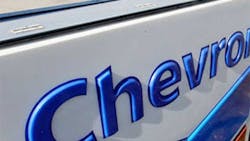US Judge Bars Enforcement of Ecuador's $9.5 Billion Fine Against Chevron
NEW YORK - A U.S. judge Tuesday upheld Chevron's allegations that an Ecuadoran court decision ordering it to pay $9.5 billion for oil pollution in the Amazon jungle was fraudulently obtained.
U.S. District Judge Lewis Kaplan concluded that plaintiffs in the 2011 case and their lawyers committed a host of corrupt actions, including ghost-writing the original judgment, submitting fraudulent evidence and bribery.
In barring enforcement of the original fine in U.S. courts, the decision handed Chevron (IW 500/2) a big win in its long fight with Ecuador.
But it was a setback to the indigenous people from Ecuador's oil-rich Lago Agrio in the eastern Ecuador region of Oriente, who have long sought compensation for pollution by U.S. oil company Texaco between the 1970s and early 1990s.
They allege that Texaco, which was bought by Chevron in 2001, dumped oilfield waste that polluted large swathes of the jungle region, causing widespread sickness and a surge in deaths from cancer.
Chevron has insisted it cannot be held responsible, and argued that corruption underpinned the massive fine ordered by the Ecuador court.
Kaplan said Steven Donziger, the New York lawyer who has represented the Ecuadoran plaintiffs since the 1990s, and his allies secretly paid off the authors of an ostensibly independent report on the pollution damages that was requested by the court.
In addition, he said, "Ultimately the [Donziger team] wrote the Lago Agrio court's judgment themselves and promised $500,000 to the Ecuadoran judge to rule in their favor and sign their judgment," Kaplan said.
"If ever there was a case warranting equitable relief with respect to a judgment procured by fraud, this is it," Kaplan wrote.
Chevron called the ruling "a resounding victory for Chevron and our shareholders."
"It confirms that the Ecuadoran judgment against Chevron is a fraud and the product of a criminal enterprise."
Kaplan concluded that Chevron "might bear some responsibility" for pollution in Ecuador.
Bribery Admission
Witnesses in the case included a former Ecuadoran judge who admitted to accepting bribes.
Representatives of the plaintiffs and Donziger vowed to appeal.
"Today's decision should be extremely troubling for anybody who cares about the rule of law," said Deepak Gupta, who will represent Donziger in the appeal.
"This court has taken the extraordinary and unprecedented step of appointing itself a worldwide fact-finding commission."
Han Shan, a spokesman for Ecuadoran villagers, said they would continue to press to enforce the Ecuadoran ruling in other countries where Chevron does business. Chevron has no significant assets in Ecuador.
"The affected communities long ago gave up hope that a U.S. court would provide them relief from Chevron's contamination, which has taken their loved ones, poisoned their lands, and imperiled their cultures," he said.
Kaplan's ruling bars the Ecuadoran plaintiffs from enforcing Ecuador's ruling in a U.S. court, and his decision bars Donziger and some allies in the case "from profiting in any way from the egregious fraud that occurred here."
But Kaplan said that his decision does not prevent enforcement of the Lago Agrio judgment in other countries.
Lago Agrio plaintiffs plan to press on with suits against Chevron in Argentina, Brazil, Canada and possibly other jurisdictions.
"Nothing in Judge Kaplan's ruling will prevent my clients from pursuing the judgment's enforcement in other countries. The villagers deserve justice, and I am confident they will get it despite Chevron's efforts to undermine the rule of law," Donziger said.
Chevron plans to have the 500-page ruling translated into languages used in other countries where the Ecuadorans sue the company.
"Foreign courts will find those factual findings compelling," said Randy Mastro, an attorney representing the company.
Copyright Agence France-Presse, 2014
About the Author
Agence France-Presse
Copyright Agence France-Presse, 2002-2025. AFP text, photos, graphics and logos shall not be reproduced, published, broadcast, rewritten for broadcast or publication or redistributed directly or indirectly in any medium. AFP shall not be held liable for any delays, inaccuracies, errors or omissions in any AFP content, or for any actions taken in consequence.
